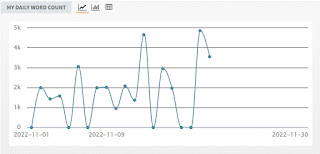I knew the premise of the story way before reading the book; it was in all the reviews. It's nearly Christmas when the coal merchant and protagonist of the story discovers something horrible in the all-girl convent in his small Irish village. He muses on this for a while, then comes to a decision.
And that, really, is the whole story. There are some bits on his past as an orphan, on how the church has shaped the lives of those in the little village, on how you can loose everything by taking one step wrong, and on how his daughters will suffer when he does. These are probably intended to cast a dark shadow across the whole novel, which make the ending a shining path out of this darkness, but for me it never felt that way. The protagonist felt like too much of a decent character, grown up to believe in the goodness of others and the ability to shape his own life to be actually burdened by the expectations of others. The inevitable outcome felt inevitable from the start.
Which made the story to me not that spectacular. Perhaps if I was expecting bleakness or horrors, I would have felt uplifted at the end. But already expecting exactly what did happen, I merely felt disappointed. Was this really everything there was to it? Was this the 'story of hope' that should have won the Booker in these dark times?
I can't really remember any of the exact writing, which isn't a great sign either. The setting was 1986s Ireland, which felt strange to me; descriptions of how people lived felt like they were more at home in the 1950s than the 1980s. I know I found none of the characters remotely likeable, including our dear protagonist. There were five daughters, but they all mingled together, their respective ages and characters blending into one perfect being, safe from all the supposed horrors the story would throw at them.
It's not that I disliked the story, it just really didn't make any impression at all. Perhaps it is because I haven't grown up in a small town, or under the yoke of an all-controlling church, which makes it hard to relate. As it is, I found the story unremarkable, the setting unbelievable and the characters unlikeable. If this is indeed the best thing to have received a Booker nomination, I will refrain from reading any of the others.



